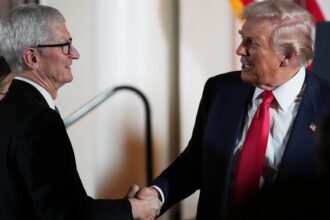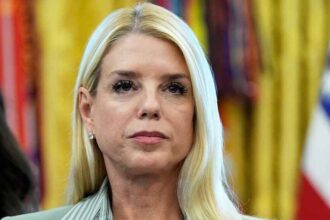The federal government has announced a freeze on over $2.2 billion in grants and $60 million in contracts to Harvard University. The move follows the university’s refusal to comply with new directives issued by the Trump administration aimed at curbing campus activism and reforming internal policies.
In a formal letter sent to Harvard last Friday, the administration laid out sweeping changes the institution must adopt to continue receiving federal support. These included enforcing “merit-based” admissions and hiring, conducting an audit of faculty and student views on diversity, and implementing restrictions on student group funding.
One of the administration’s most controversial demands is a ban on face masks, seen as a direct response to pro-Palestinian protests. Additionally, Harvard was ordered to stop recognizing or funding any student organization that allegedly supports “criminal activity, illegal violence, or illegal harassment.”
Harvard President Alan Garber responded firmly in a public letter on Monday, stating that these demands threaten the First Amendment rights of the university and surpass the federal government’s lawful authority under Title VI. Garber emphasized that academic independence is a cornerstone of higher education that cannot be compromised.
“No government — regardless of which party is in power — should dictate what private universities can teach, whom they can admit and hire, and which areas of study and inquiry they can pursue,” Garber wrote. He further highlighted Harvard’s own ongoing reforms to address antisemitism and uphold community values.
This funding freeze is part of a broader push by the Trump administration to use public funds as leverage to mold campus policies. Other Ivy League schools, including the University of Pennsylvania, Brown, and Princeton, are also facing funding suspensions tied to similar noncompliance with federal directives.
The letter sent to Harvard reportedly echoes the tone and demands issued to Columbia University earlier this year, which prompted that institution to enact certain changes under the threat of significant federal cutbacks.
In response to these actions, a group of Harvard alumni has written to school leadership urging them to legally resist what they describe as “unlawful demands” threatening academic freedom. One alumna, Anurima Bhargava, praised Harvard’s resistance, saying it “stood up today for the integrity, values, and freedoms that serve as the foundation of higher education.”
The situation has also triggered legal and public backlash. The American Association of University Professors filed a lawsuit on Friday, arguing that the Trump administration violated procedural requirements under Title VI by failing to notify Congress or Harvard before initiating funding cuts.
The lawsuit states that the administration’s demands are not genuine efforts to enforce the law but are rather attempts to enforce political ideology and suppress opposing viewpoints.
Over the weekend, students, faculty, and Cambridge residents took to the streets in protest, voicing concerns over government interference in university governance. The case is expected to spark further debate over the role of politics in academia and the extent of federal authority over private institutions.
Also Read: Wisconsin Teen Accused of Killing Parents Allegedly Targeted President Trump








